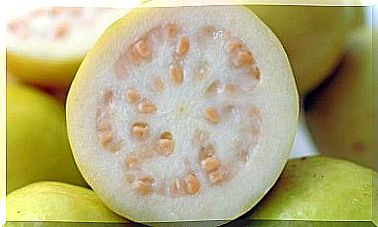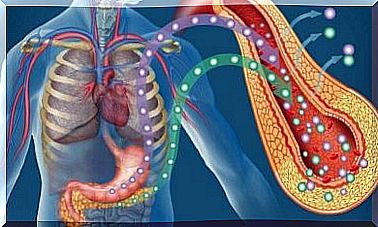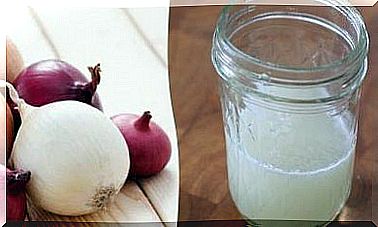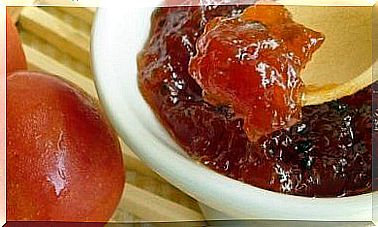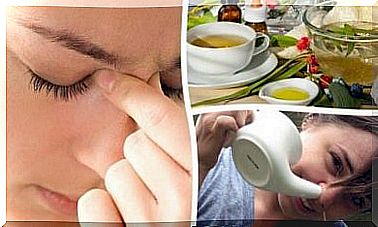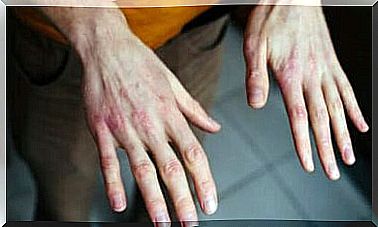10 Possible Effects Of Resveratrol On The Skin
Resveratrol has innumerable health-promoting properties. It’s a great ally when it comes to skin care. Do you know its effects? Here we explain the details to you.
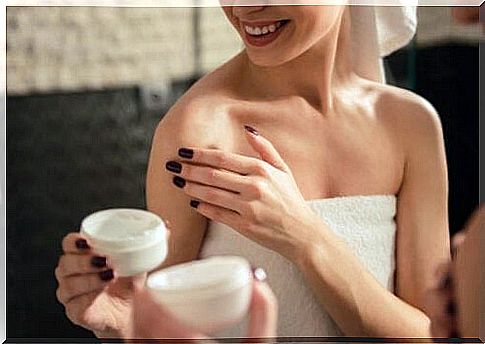
Certain fruits and vegetables naturally contain resveratrol, including grape skins, nuts and especially red wine. This substance has positive effects on the skin both on an aesthetic level and in the treatment of specific diseases.
Resveratrol is used in oral supplements and in cosmetic creams. It is well tolerated, safe and non-toxic. In addition, resveratrol creams are safe to use topically. However, at a concentration of more than 0.5%, irritation usually occurs.
Effects of resveratrol on the skin
Resveratrol has numerous biological functions, including antioxidant, heart protective, neuroprotective, anti-inflammatory, and anti-cancer properties. Here we introduce you to 10 effects of this substance that are related to skin tissue so that you can get to know them better.
1. Antioxidant to fight free radicals
Many view resveratrol as an antiaging molecule. It acts as a dual antioxidant that can neutralize free radicals and also increase the body’s ability to get rid of them. The combination of topical resveratrol with baicalin and vitamin E is a cosmetic ingredient that can be used for skin rejuvenation.

2. Anti-aging
The Journal of Drugs in Dermatology conducted studies that showed significant improvement in the following signs related to skin aging:
- Fine lines and wrinkles
- Firmness and elasticity of the skin
- laxity
- Hyperpigmentation
- Luster and roughness of the skin
In addition, researchers continue to investigate the role of resveratrol in preventing photoaging. Using experimental models, they compare the substance with other antioxidants that are used in skin care products in order to get a complete picture of its effectiveness.
3. Depigmentation
Resveratrol is a direct and indirect tyrosinase inhibitor. Therefore, it shows promise for the treatment of pigment disorders, considering its various effects on the formation of spots on the skin.
Despite the numerous laboratory results, there is little data from human studies. As a result, further clinical studies are required to demonstrate its full effectiveness and safety.
4. Improving acne with resveratrol
The American Journal of Clinical Dermatology has shown positive results in its studies for resveratrol gel for acne. However, its effectiveness has yet to be tested for the various concentrations and formulas in order to determine the appropriate formulation for a therapeutic approach.
The acne vulgaris (common acne) is a disease of the sebaceous glands, which by an inflammatory immune response to the bacterium Propionibacterium acnes ( P. acnes is marked). Resveratrol has shown sustained antibacterial activity against this microbe.
5. Anti-inflammatory properties of resveratrol
Inflammatory skin diseases are the most common clinical problem in dermatology. Because of the severe side effects of immunomodulators like glucocorticoids and tacrolimus, safe and effective alternatives are in great demand. However, these currently available creams cause reactions that patients and doctors want to avoid.
Although to date there is little or no evidence that it can inhibit skin inflammation in humans , the anti-inflammatory benefits of resveratrol have been well established in mice with inflammatory skin conditions.
Because of this effect, it seems obvious that the prevention of skin cancer should be a special and crucial application of the preparation.
6. Anti-cancer properties
Oxidative stress contributes significantly to the development of skin cancer, such as melanoma. As a result, antioxidants, including resveratrol, can be used to prevent and treat this cancer.
The International Journal of Molecular Sciences has published an article on the role of resveratrol in cancer therapy, which indicates that this substance has potential anti-cancer effects both in vivo and in vitro.
7. Regeneration of the epidermis
External use of resveratrol accelerates skin regeneration after peeling procedures, as it stimulates collagen production. It reduces skin irritation and redness that these procedures can cause.
It has been proven that formulas containing the substance can stimulate the proliferation of fibroblasts and contribute to an increase in collagen III concentration. Both substances play a role in the healing process.
8. Protection against ultraviolet radiation (UV)
Excessive skin exposure to UV radiation causes sunburn, photoaging, and skin cancer. In this context, both in vivo and in vitro studies have shown that resveratrol protects the skin from UV radiation. In addition to UVA radiation, it can also protect keratinocytes (skin cells) from damage caused by UVB radiation.
9. Keloids
Resveratrol has beneficial effects on keloids, according to studies in life sciences, biotechnology, and biochemistry. A keloid is an exaggerated scarring of the skin in which the fibers and cells involved overgrow.
In these studies it became clear that resveratrol induces apoptosis of keloid fibroblasts. At the same time, it causes a reduction in the mRNA expression for collagen 1 and procollagen 3. It also increases the expression of SIRT1. All of this means that the tightened mechanism that leads to abnormal scarring is slowing down or even stopping.
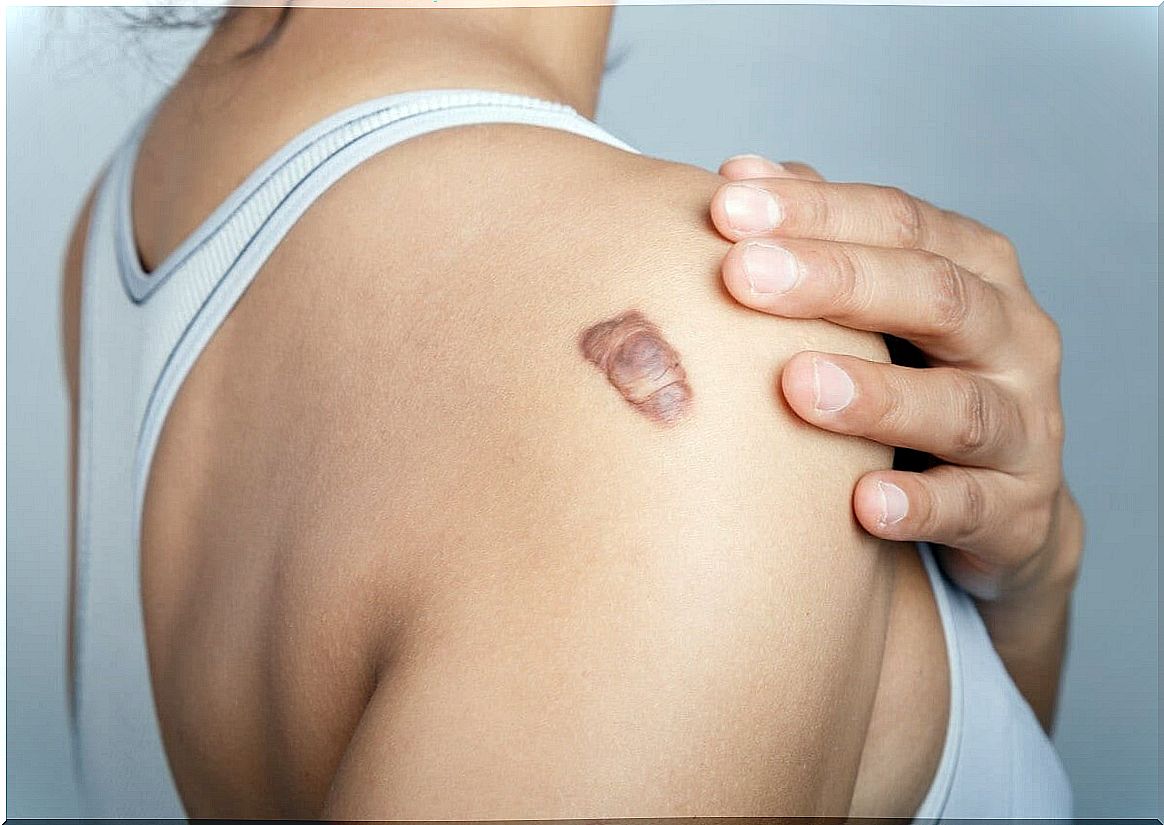
10. Wound healing
Skin wound healing involves the spread of fibroblasts and keratinocytes and the deposition of collagen. According to several observations, resveratrol stimulates cell proliferation in animal wounds, which accelerates this process.
Final notes on resveratrol
Resveratrol is used more and more in cosmetology and dermatology. While there is ample in vitro and in vivo evidence that it could be a promising therapeutic agent, clinical studies have yet to confirm its potential.
The future of this substance looks promising. This applies in particular to aspects that have to do with proper healing and the protection of skin tissue from external influences such as UV radiation.
Therefore, it is always preferable to consult a medical professional for the proper use of resveratrol until there is more evidence.
